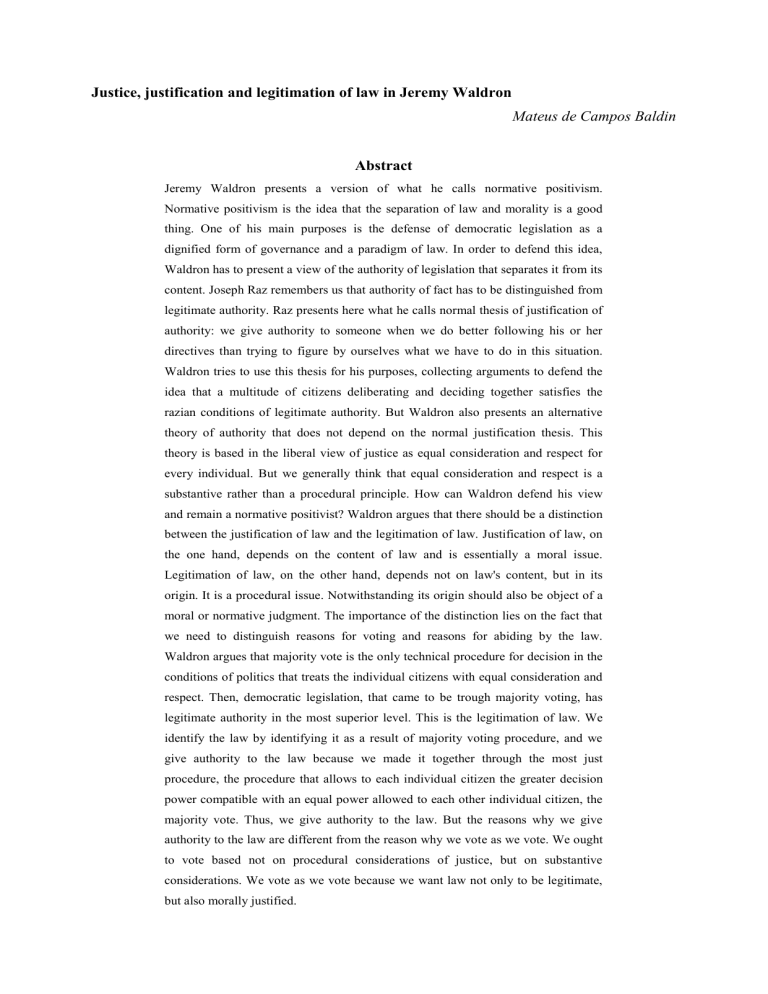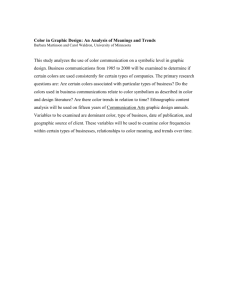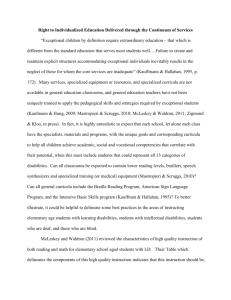Justice, justification and legitimation of law in Jeremy Waldron

Justice, justification and legitimation of law in Jeremy Waldron
Mateus de Campos Baldin
Abstract
Jeremy Waldron presents a version of what he calls normative positivism.
Normative positivism is the idea that the separation of law and morality is a good thing. One of his main purposes is the defense of democratic legislation as a dignified form of governance and a paradigm of law. In order to defend this idea,
Waldron has to present a view of the authority of legislation that separates it from its content. Joseph Raz remembers us that authority of fact has to be distinguished from legitimate authority. Raz presents here what he calls normal thesis of justification of authority: we give authority to someone when we do better following his or her directives than trying to figure by ourselves what we have to do in this situation.
Waldron tries to use this thesis for his purposes, collecting arguments to defend the idea that a multitude of citizens deliberating and deciding together satisfies the razian conditions of legitimate authority. But Waldron also presents an alternative theory of authority that does not depend on the normal justification thesis. This theory is based in the liberal view of justice as equal consideration and respect for every individual. But we generally think that equal consideration and respect is a substantive rather than a procedural principle. How can Waldron defend his view and remain a normative positivist? Waldron argues that there should be a distinction between the justification of law and the legitimation of law. Justification of law, on the one hand, depends on the content of law and is essentially a moral issue.
Legitimation of law, on the other hand, depends not on law's content, but in its origin. It is a procedural issue. Notwithstanding its origin should also be object of a moral or normative judgment. The importance of the distinction lies on the fact that we need to distinguish reasons for voting and reasons for abiding by the law.
Waldron argues that majority vote is the only technical procedure for decision in the conditions of politics that treats the individual citizens with equal consideration and respect. Then, democratic legislation, that came to be trough majority voting, has legitimate authority in the most superior level. This is the legitimation of law. We identify the law by identifying it as a result of majority voting procedure, and we give authority to the law because we made it together through the most just procedure, the procedure that allows to each individual citizen the greater decision power compatible with an equal power allowed to each other individual citizen, the majority vote. Thus, we give authority to the law. But the reasons why we give authority to the law are different from the reason why we vote as we vote. We ought to vote based not on procedural considerations of justice, but on substantive considerations. We vote as we vote because we want law not only to be legitimate, but also morally justified.
I
Legal positivism has been comprehended as a conceptual thesis about the separation between the concepts of law and of morals. This is supposed to mean that there is no necessary connection between legal judgment and moral judgment. This is called the separability thesis and was summarized in John Austin’s The Province of Jurisprudence Determined :
The existence of law is one thing; its merit or demerit is another. Whether it be or be not is one enquiry; whether it be or be not conformable to an assumed standard, is a different enquiry. A law, which actually exists, is a law, though we happen to dislike it…” 1
But what if we comprehend legal positivism not as a conceptual, but as a normative or ethical thesis about the law: the thesis that it is good to keep legal judgment and moral judgment separated. Jeremy Waldron is one of those who defends normative positivism. He says he wants to present the thesis that this separability of law and morality, or this separability of legal judgment and moral judgment, is a good thing, perhaps even indispensable (from a moral, social, or political point of view), and certainly something to be valued and encoruraged.
2
Waldron believes that normative positivism prevents positivism from being a “sterile semantic or conceptual thesis” 3
. This is so because for a theory to be intelligible, it has to be motivated. So for the separability thesis to be intelligible, it must have a motive. We have to se the point in doing this kind of separation.
Of course, this does not mean that the positivist has to insert a moral or political agenda in the analytical study of law. It does not even mean that the normative positivist has to view law as an unqualified human good. Waldron points out how H. L. A. Hart in presenting the emergence of a legal system from a changing pre-legal society also mentions both advantages and dangers of the creation of a legal system.
4
So, even Hart can be read as giving an evaluative, rather than a neutral conceptual analysis of law.
1 AUSTIN 1995, p. 157.
2 WALDRON 2001, p. 411.
3 WALDRON 2001, p. 432.
4 WALDRON 2001, p. 429. See HART 1994, pp. 91-99.
But, except for anarchists, the majority of legal theorists tends to focus on the advantages rather than the dangers of a legal system. A normative positivist, like Waldron, is not an exception here. Focusing on law’s advantages, he argues that these advantages cannot be reached “unless it [the law] is set up in a way that enables people, by and large, to determine what the law is on a given subject without having to exercise moral judgment.” 5
In other words, “law cannot provide any benefits to balance against the costs that accompany its introduction unless it is set up in a positivist way.”
6
I want to present here an exposition of Jeremy Waldron’s normative positivism from a reading of his most famous thesis, that of the dignity of legislation, a presentation of legislation as a dignified source of law about which he writes in The Dignity of Legislation and Law and Disagreement . I will argue that Waldron presents a view of the authority of law that separates it from its content, in accordance of his normative positivism. But I will also show that Waldron presents not one, but two theories of the authority of law, and that the second theory presupposes normative concepts that are not present in the first. In doing so, one might think that Waldron has to abandon his normative positivism. But I will argue that a conceptual distinction between justification and legitimation, made in Chapter 16 of
Waldron’s Liberal Rights , can show that this critic is misleading.
II
One of Waldron’s main purposes in his two famous books, The Dignity of Legislation and
Law and Disagreement , is the defense of democratic legislation as “a dignified mode of governance and a respectable source of law”
7
. Waldron emphasizes the disagreement as one of the recurring characteristics of modern societies. Political philosophers like John Rawls made a good job identifying disagreements about conceptions of good life and as regarding them not only as a characteristic of modern societies but also as characteristic of a well ordered society. But Waldron resents that these same political philosophers did a poor job when it comes to disagreements about justice, rights and the common good.
8
So, what we need, in Waldron‘s view, is a normative theory of law that puts disagreement in its center. It has to be a normative theory because it has to explain why we have to give authority to the law and why it is a good thing that we follow the law. But how to
5 WALDRON 2001, p. 430.
6 WALDRON 2001, p. 431.
7 WALDRON 1999a, p. 2; WALDRON 1999b, p. viii.
8 WALDRON 1999ª, pp. 154-155; WALDRON 1999b, pp. 1, 152.
do this when we disagree not only about the good life, but also about what justice, rights and the common good require us to do?
The issue of authority of law brings us to Joseph Raz, who said:
Authority in general can be divided into legitimate and de facto authority. The latter either claims to be legitimate or is believed to be so, and is effective in imposing its will on many over whom it claims authority, perhaps because its claim to legitimacy is recognized by many of its subjects. But it does not necessarily possess legitimacy.
9
Legal norms claim to be accepted and followed by us, even when we think it is not a good thing to accept and follow them. So, the authority of a particular legal norm does not depend in its being accepted as a good thing. This is what legal positivists have always tried to say to us. But it is not a normative theory, it is a theory about de facto authority, because, as Raz correctly assumes, “necessarily law, every legal system which is in force anywhere, has de facto authority. That entails that the law either claims that it possesses legitimate authority or is held to possess it, or both.” 10
For a theory of authority to be normative, it has to say that it is a good thing that we don’t need to view each legal norm as good in itself for us to give authority to them. In other words, it has to show us why it is a good thing to accept and follow the law even when we think we don’t have good reasons to accept and follow the law. As many of us think that for law to have legitimate authority, it has to have certain moral contents, at least to guarantee justice, to protect some rights, and to lead to the common good. But, as we asked before, if we disagree about moral issues as well as about justice, rights and the common good, how can we construct a normative theory capable of explain us why we have to accept and follow the law?
Waldron constructs his normative theory of law based on the fact that we disagree about justice, rights and the common good, and this disagreement explains why we need the law. It the law is understood as a response to our collective need to coordinate our actions of various areas with reference to a common framework when we disagree about how to do this and how to frame the scheme needed for collective action, then we can understand why it is not surprising that we must from time to time, see ourselves under legal obligation to do what we think it is not good to do.
11
If we disagree about the good life as well as about justice, rights and the common good, law’s legitimate authority should also be separated from law’s
9 RAZ 1995, p. 211.
10 RAZ 1995, p. 215.
11 WALDRON 1999b, p. 7.
accordance to moral principles. It is a good thing, so, that law’s authority is separated from its content.
So, Waldron wants to bring the disagreements about justice, rights and the common good to the center of his Jurisprudence, as a necessary aspect of a good political theory and a good normative theory of the law. And he thinks that an emphasis in these disagreements can explain why the authority of law must be separated from its morality.
III
Joseph Raz has defended a very sound theory of legitimate authority. Legitimate authority can be theoretical or practical (or both). The advice of a theoretical authority is a very strong reason for believing in something. The directive of a practical authority is a very strong reason for acting in some way.
12
What we look for in Political and Legal Philosophy is a normative theory of legitimate practical authority.
For practical authority to be legitimate it has to be of a certain kind. Raz summarizes his theory of authority in three thesis:
The dependence thesis: All authoritative directives should be based, among other factors, on reasons wich apply to the subjects of those directives and which bear on the circumstances covered by the directives. Such reasons I shall call dependent reasons.
The normal justification thesis: The normal and primary way to establish that a person should be acknowledged to have authority over another person involves showing that the alleged subject is likely better to comply with reasons which apply to him (other than the alleged authoritative directives). If he accepts the directives of the alleged authority as authoritatively binding, and tries to follow them, than if he tries to follow the reasons which apply to him directly.
The pre-emption thesis: The fact that an authority requires performance of an action is a reason for its performance which is not to be added to all other relevant reasons when assessing what to do, but should replace some of them.
13
The first and the third of these theses articulate what Raz calls the service conception of authority: “They regard authorities as mediating between people and the right reasons which apply to them, so that the authority judges and pronounces what they ought to do according to right reason.” 14
This mediating role of the legitimate practical authority cannot be performed if its subjects continue to act based directly on the reasons which apply to them. So, this role
12 RAZ 1995, p. 211.
13 RAZ 1995, p. 214.
14 RAZ 1995, p. 214.
can only be carried on if legitimate authority’s pronouncements replace for its subjects the force of the reasons which apply to them.
15
This, of course, doesn’t imply blind obedience. The acceptance of authority has to be justified. And this is the role of the normal justification thesis in the razian theory of authority: authority can only be justified and legitimate if its alleged subjects do better if they accept the directives of the alleged legitimate authority than if they try to discover by themselves what they have to do.
16
One good example is the authority we give to a cardiologist to say to us what we have to do not to have a heart attack. We consider his authority to be legitimate because we think we to better in regard to the reasons which apply to us for acting if we follow the cardiologist’s advices and directives than if we try by ourselves to figure out what we have to do in order not to have a heart attack.
In this formulation of the normal justification thesis, it is people that have authority over other people. And by this interpretation, there is a very strong relation between authority and authorship.
17
But this interpretation of the normal justification thesis is problematic when we try to apply it to the authority of legislatures, bodies composed by hundreds or even thousands of people, not to mention direct democratic voting. So, it is also problematic to
Waldron’s project of presenting democratic legislation as a dignified source of law that deserves authority over us.
Legal norms can be seen as directives, but legislatures cannot be correctly seen as agents capable of communion with other. Waldron compares legislatures to automatic machines capable of producing laws from the votes of its members.
18
And if we work based on the model of direct democracy, the attribution of intention to a legislative body can be even more problematic. So, Waldron needs to make some modification in Raz’s formulation of the normal justification thesis so that it can apply to law understood as democratic legislation. Waldron labels this modification as “thesis [J]”:
[J]: A statue (or any text) S has authority over a person Y only if person Y is likely better to comply with the reasons which apply to him by following the provisions of S, than if he tries to follow those reasons directly.
19
15 RAZ 1995, pp. 214-215.
16 RAZ 1995, pp. 214-215. WALDRON 1999b, pp. 84-85; 95-96.
17 WALDRON 1999b, pp. 129-131.
18 WALDRON 1999b, pp. 126-129.
19 WALDRON 1999b, p. 131.
With this formulation, it doesn’t matter if the statue (or text) S has or not a definite author, or when one does not make a reference to its author. S satisfies the conditions of legitimate authority “in virtue of features that make no reference to any person’s expertise.”
20
What are these features in the case of democratic majority voting?
If we are to give reasons for why we do better respecting and following the result of majority voting, that is, democratic legislation, we have to demonstrate that people do better respecting and following law’s provisions on some matters than trying to figure out by themselves what they ought to do in this matters. And Waldron’s presents three somewhat independent lines of argumentation that can reach this conclusion.
The first is the utilitarian argument. It is argued that majoritarian voting can be a very reliable guide to the social utility, that is, can reliably show us what will lead us to the greatest happiness of the greatest possible number of individuals.
21
This is summarized by Waldron trough the following words:
Thus, as democrats, we follow the will of the majority; and as utilitarians, we try to promote the greatest aggregate happiness. The two amount to roughly the same thing if individual votes are a reliable guide to the conditions of individual happiness.
22
So, if, as utilitarianism teach us, we are supposed to act in such a way as to maximize the social utility, than we do better abiding by the democratic legislation than trying to figure out by ourselves what we ought to do.
But, of course, this argument is open to many classical objections against utilitarianism. This is not the place to analyze all these objections; but one of them needs mention. This argument presupposes that voters are always psychologically egoists, that they always vote based only in their interests understood as maximization of pleasures. If voters vote based on other considerations, their opinion of what justice, the rights and the common good requires, for example, the result of majority voting will not be a good guide to social utility.
23
This objection does not affect the second line of argumentation. This line is based on
Condorcet’s Jury Theorem. Waldron explains the argument in this way:
20 WALDRON 1999b, p. 131.
21 WALDRON 1993, pp. 394-396; WALDRON 1999b 133-134.
22 WALDRON 1999b, pp. 133-134.
23 WALDRON 1993, pp. 396-397.
… if voters are independently addressing a question that is susceptible to a right and a wrong answer, and if the average probability of each voting for the correct answer is greater than 0.5, then the probability that the answer determined for the group by a majority procedure will be correct tends to certainty as group sizes increases.
24
This line of argumentation shows us why it can be a better idea for us to follow the law than to try to discover by ourselves what we ought to do: if majority voting was conducted in the way the theorem predicts, than the legislation has greater probability of being right than our own private deliberations. But, of course, if the average competence of the voters is below
0.5, than the probability that the majority decision will be correct tends to decline to zero.
25
The third line of argumentation can be sustained together with Condorcet’s Theorem, and can be used to explain why majority decision meats Condorcet’s requirements for the
Theorem. This is what Waldron calls the Doctrine of the Wisdom of the Multitude 26 , presented in the Book III of Aristotle’s Politics :
For the many, none of whom is a good man, may nevertheless be better than the few good man when they get together. Not that each by himself will be better but that as a whole they will be, as meals to which many have contributed are better than those provided by one outlay. For each of these many may possess some part of goodness and wisdom; and when they get together, as the mass may be a single man with many feet and many hands and many senses, so it may be with their character and thought.
That is why the many are better judges of works of music and poetry; some judge one part, some another, and all together they judge it all. ( Pol. III,11 1281b1-10)
By this argument, as in the others, we do better with the reason when we abide by the law than when we try to figure out what we ought to do by ourselves. If the multitude, through collective deliberation and majority voting, can reach better decisions than each individual that composes it, than we do better following majority decision than our own individual deliberations.
So, Waldron thinks that we have resources to apply Raz’s normal justification thesis not only to persons, but also to democratic legislation. But even so, there is a major problem with the normal justification thesis: it can only consider an authority as legitimate when its subjects think that they do better to comply with reasons which apply to them when they follow the law than when they deliberate by themselves. But those who disagree about the
24 WALDRON 1993, p. 412.
25 WALDRON 1993, p. 412; WALDRON 1999b, p. 135.
26 WALDRON 1999a, pp. 93-94; WALDRON 1999b, pp. 85, 136.
reasons that apply to them in some issue or area of life frequently have a good interest in submit to an authority who determines what are those reasons.
27 Even if we can, as Waldron thinks he demonstrated, apply the normal justification thesis to democratic legislation, it cannot explain the authority of democratic legislation over that citizen who thinks it is better to deliberate by him or herself than to follow majority decision.
IV
Law demands us to act in accordance with its directives, and this demand is what orients
Raz’s normal justification thesis. But law also makes other demand. But Constitutions, statures e judicial decisions demands us, for example, to not try to find ways to nullify it, or get around it, or resist its incorporation in the legal system. In short, law demands us to respect it as a dignified and respectful form of governance.
28
Of course, in democratic systems, no one is expected to accept a legal norm as final and irreversible. There are a lot of constitutional arrangements that permits to the people to work responsibly for a norm’s reversal or repeal, including judicial review and, in extremis , civil disobedience.
29 More than that, we are expected to view the current legal norms not only as the opinion of the actual majority of the citizens, but as something that is there in the name of the whole political community, independently of the merit of its content.
30
This demand lies on the core of the second theory of authority that Waldron presents.
And it is presents a very different conception of authority than that based on Raz’s normal justification thesis. It is so because this conception of authority makes a demand even for someone that thinks that he or she has good reasons not to abide by the law, that he or she would do better trying to find by him or herself what to do than following law’s directives. In other words, this conception of authority pretends to show democratic legislation as having authority over people who disagree if it satisfies or not the normal justification thesis.
31
Waldron adapts the idea of “the circumstances of politics” from Rawls’s circumstances of justice. To Rawls, moderate scarcity and limited altruism are aspects of the human condition that make justice as a virtue and a practice both possible and necessary.
32
Similarly, Waldron asks himself what are the aspects of human condition in community that
27 WALDRON 1999b, p. 85.
28 WALDRON 1999b, p. 100.
29 WALDRON 1999b, p. 100.
30 WALDRON 1999b, p. 101.
31 WALDRON 1999b, p. 101.
32 RAWLS 1971, pp. 126-130.
make democratic politics both possible and necessary.
33 He comes up with two circumstances, as Rawls: a) “the felt need among the members of a certain group of a common framework or decision or course of action on some matter” 34 , and b) “disagreement about what that framework, decision or action should be” 35
. The disagreement would not be important if there were no need a common framework, decision or course of action; the need for a common framework, decision or course of action would not matter if there were no disagreement
(consensus exclude the necessity of politics).
36
So, law can be viewed as a decision made in the name of the political community in the circumstances of politics.
37
The majority principle of decision can be viewed as a procedural and technical method of decision in the circumstances of politics. It is, in this sense, like a monarchical legislator or a completely arbitrary method like tossing a coin.
38
It is so because, as we saw when we viewed Raz’s theory of authority. The whole point in giving practical authority to a person or institution is to view its directives as replacing for its subjects the role of the reasons which apply to them for action. If the method of decision is not procedural and technical, the decision cannot replace for its subjects the role of the reason which apply to them.
39
But majority voting respects the individual citizens in a way neither the monarchical legislator nor the completely arbitrary method can respect:
First, it respects their differences of opinion about justice and the common good: it does not require anyone’s sincerely held view to be played down or hushed up because of the fancied importance of consensus. Second, it embodies a principle of respect for each person in the process by which we settle on a view to be adopted as ours even in the face of disagreement.
40
If a problem affects millions of people, than a respectful procedure of decision requires this millions to participate as equals in the decision. Majority principle of decision satisfies this requirement by giving to each individual the same amount of power in the decision, an equal weight in the community’s decision. More than that, majority principle of decision gives to each individual citizen the greatest decisiveness compatible with an equal share of
33 WALDRON 1999a, p. 156-157; WALDRON 1999b, pp. 102-103.
34 WALDRON 1999b, p. 102
35 WALDRON 1999b, p. 102
36 WALDRON 1999b, p. 103.
37 WALDRON 1999a, pp. 154-157; WALDRON 1999b, pp. 103-105.
38 WALDRON 1999ª, pp. 156-157; WALDRON 1999b, pp. 107-108.
39 See above. See also WALDRON 1999b 107-108.
40 WALDRON 1999b, p. 109.
decisiveness to each other individual citizen. In this sense, majority rule is a fair method of decision.
41
What lies behind this conception of the authority of law is a certain conception of justice, that is the liberal conception of justice as equal consideration and respect for every individual. Majority decision ultimately found its basis in equality and respect for the individuals.
42
But it is a somewhat different view of liberal justice. We are familiar with equal consideration and respect understood as a more substantive conception. Liberal justice is generally thought to be about the impact of political and legal decisions on the life of the individuals, and not about equal participation in the political and legal decisions.
43
Political philosophers, legal philosophers and jurists are worried that a procedural and technical method of decision (be it or not majority rule) can substantially affect the equal consideration and respect for the individuals. In the case of majority decision, they are worried that the minority can be tyrannized by the majority.
But in the circumstances of politics, in the circumstances in which we disagree about what is the just decision, about what will lead to substantially equal consideration and respect, all we can have is this procedural and technical view of liberal justice. To present the substantial result as an argument against the decisory procedure necessarily privilege one controversial view of justice over the others.
44
Besides, nothing like the tyranny of the majority has to occur. If the citizens are voting based not only on their particular interests, but also on their views about what justice, the rights and the common good requires (including an opinion about what is the correct balance between particular and individual interests), than nothing tyrannical happen when the minority view does not prevail, guaranteed that the minority opinion participated as equal in the decision. And this is exactly what majority rule makes possible.
45
V
But, if Waldron’s second theory of the authority of law is based on a liberal view of justice, how can he remain calling himself a positivist? Even if he describes himself as a normative positivist, a central view of positivism is the defense of the separability thesis. And a
41 WALDRON 1999b, p. 114.
42 WALDRON 1999b, pp. 114-115.
43 WALDRON 1999b, p. 116.
44 WALDRON 1999b, p. 116.
45 WALDRON 1993, pp. 413-414.
normative positivist defends it as a good thing based on normative (or ethical) arguments. Can
Waldron defend his thesis and remain a normative positivist?
I think he can without many difficulties; and we can came to view Waldron’s second theory of authority as deriving from rather than conflicting to its normative positivism. The whole point in Waldron’s second and most comprehensive conception of authority is to explain why democratic made law ought to have authority over its subjects even when they disagree about its justice. And it can do so because of the procedural justice it embodies in its making process. So, if we distinguished procedural justice and substantive justice, we can understand why Waldron can remain a normative positivist.
Waldron himself uses a distinction about justification and legitimation to explain better this point:
The contrast between justification and legitimacy may appear bewildering at first, since both are used here in a normative sense. To ask whether a decision is justified is to ask whether it is, on the merits, the right decision; it is to look at the reasons weighing in favor of the course of action decided on. To ask whether a decision is politically legitimate is to raise a more procedural question; it is to ask whether it was taken in the way such a decision ought to be taken.
46
So, justification, on the one hand, depends on the content of the decision, action or framework established. It is essentially a moral issue. We ask for the justification of a legal norm when we ask about the morality of its content, or if its content is in accordance with what justice, the rights and the common good require.
Legitimation, on the other hand, is a procedural issue. It depends not on the content of a legal norm, but on its origin. We ask for the legitimacy of a legal norm when we ask if it was made in the way it ought to have been made. Notwithstanding, the origin of a legal norm has to be subject to moral or normative judgment. We ascribe legitimacy to a legal norm not only when it was made in the ways the positive law requires it to be made. This is essentially to ascribe validity to a norm. We ascribe legitimacy when the norm was made in the way justice, the rights and the common good requires it to be made. It is a question of justice, as justification also was; but a question of procedural justice, not substantive justice.
The importance of the distinction between justification and legitimacy lies on the fact that we need such a distinction in the democratic context, as Waldron explains:
46 WALDRON 1993, p. 393.
We need a distinction between justification and legitimacy, particularly in a democratic context, because we need some way of distinguishing between the reasons voters have for voting as they do, and the reasons officials have for implementing a certain decision after the votes have been counted.
47
The citizens vote the way they vote based on substantive concerns about justice, the rights and the common good. We ought to vote based not on procedural considerations of justice, but on substantive considerations. We vote as we vote because we want law not only to be legitimate, but also morally justified.
But officials and citizens when acting take the law as authoritative, and, as we saw, it requires them to take the law as a reason for action. And it requires them to see the law as replacing the reasons which apply to them, that is, the reasons of substantive justice. But for the officials and citizens to do so in a morally justifiable way, they are supposed to have reasons of procedural justice, that is, the authority of law has to be legitimate authority, it has to have been made the way justice, the rights and the common good requires it to be made.
As we saw, Waldron argues that majority vote is the only technical procedure for decision in the conditions of politics that treats the individual citizens with equal consideration and respect. In other words, it is the only procedural and technical way of deciding in the conditions of politics that meets procedural liberal justice’s requirements about the morally correct way to made a legal norm. Then, democratic legislation made through majority voting has legitimate authority in the most superior level.
VI
In this paper, I have tried to make a reconstruction of Waldron’s theories about the authority of law. I have showed that Waldron presents not one, but two rather different theories of authority, one based on Joseph Raz’s normal justification thesis and other based on considerations about procedural liberal justice. And I showed why the second theory has superior appeal over the first.
Additionally, I showed haw this can be viewed not as contrasting but as an expected result of Waldron’s normative positivism. We identify the law by identifying it as a result of majority voting procedure (this is linked to the separability thesis of conceptual positivism).
And we give authority to the law because we made it together through the most just procedure, the procedure that allows to each individual citizen the greater decision power
47 WALDRON 1993, p. 393.
compatible with an equal power allowed to each other individual citizen, the majority vote
(this is Waldron’s second theory of authority, a direct result of his normative positivism). The reasons why we give authority to the law are different from the reason why we vote as we vote.
Bibliography
ARISTOTLE. 1962. Politics: Books III and IV . Translated with Introduction and Comments by Richard Robinson. Oxford: Clarendon Press.
AUSTIN, John. 1995. The Province of Jurisprudence Determined . Edited by Wilfrid E.
Rumble. Cambridge: Cambridge University Press.
HART, H. L. A. The Concept of Law . Second Edition. Oxford: Oxford University Press.
RAWLS, John. 1971.
A Theory of Justice . Cambridge, Massachusetts: Harvard University
Press.
RAZ, Joseph. 1995. Ethics in the Public Domain: Essays in the Morality of Law and
Politics . Revised Edition. Oxford: Clarendon Press.
WALDRON, Jeremy. 1993. Liberal Rights . Cambridge: Cambridge University Press.
WALDRON, Jeremy. 1999a. The Dignity of Legislation . Cambridge: Cambridge University
Press.
WALDRON, Jeremy. 1999b. Law and Disagreement . Oxford: Oxford University Press.
WALDRON, Jeremy. 2001. Normative (or Ethical) Positivism. In: COLEMAN, Jules (Ed.).
Hart’s Postscript: Essays on the Postscript to The Concept of Law . Oxford: Oxford
University Press.





